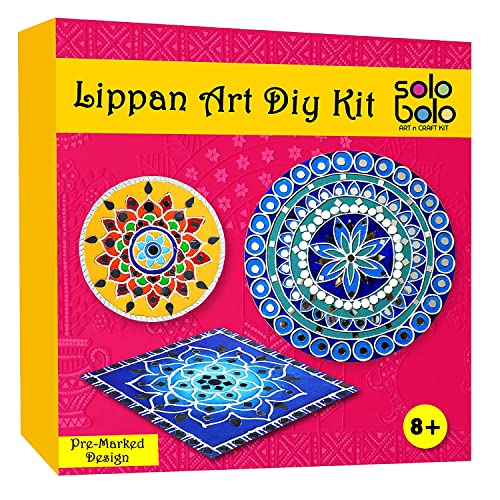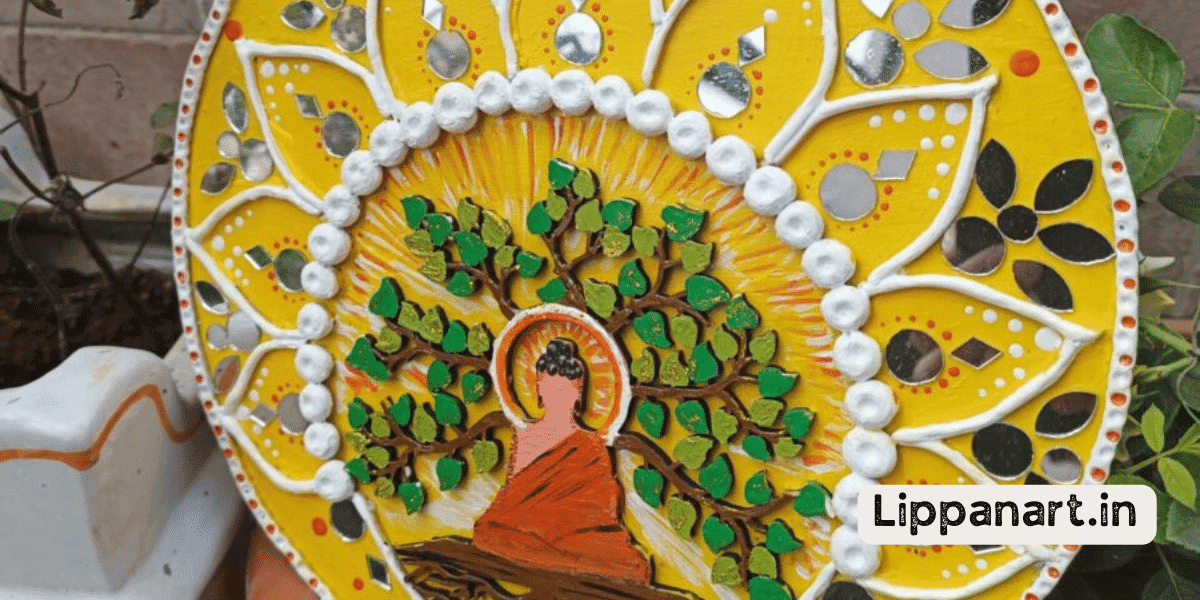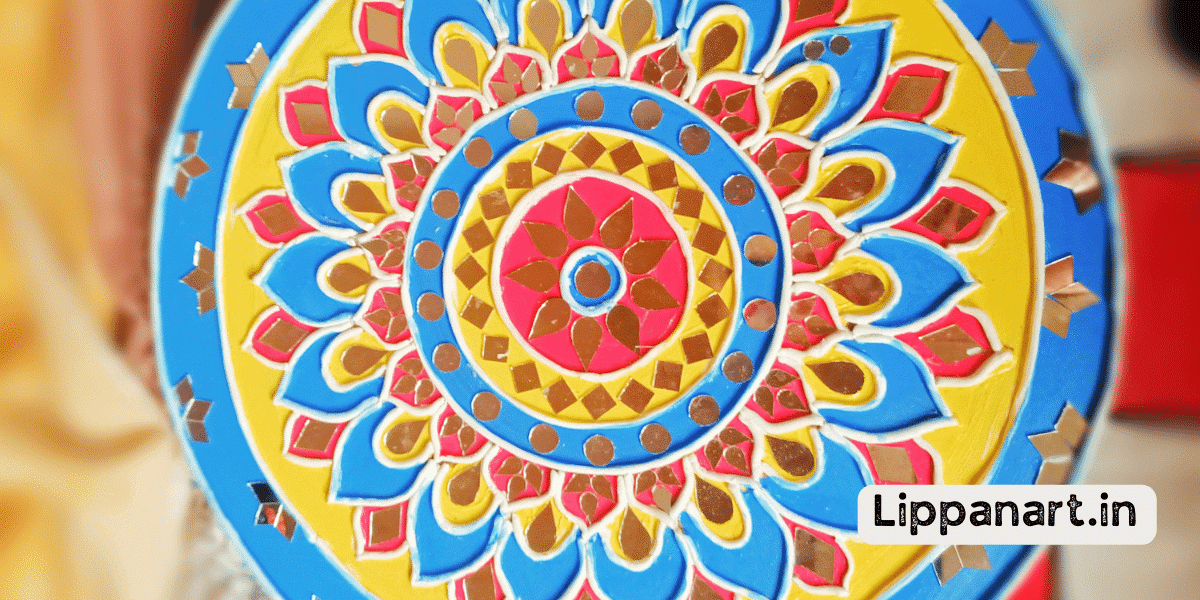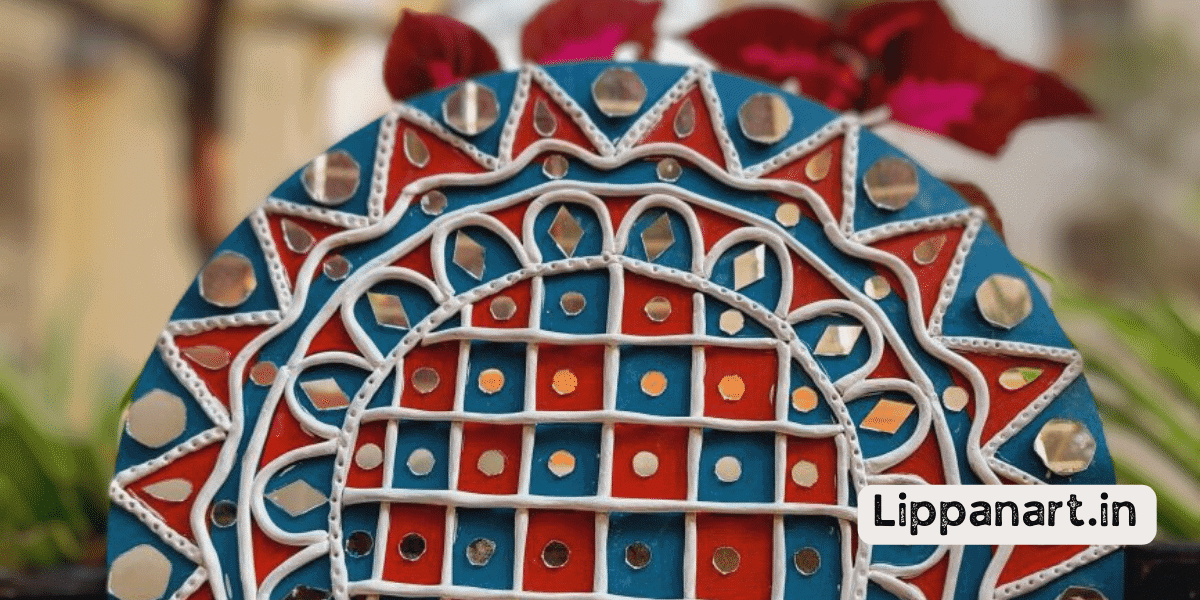Are you ready to revamp your walls with a vibrant mural? Discover the joy of painting murals with this beginner’s guide.
From gathering your supplies and preparing the wall to sketching and transferring your design, you’ll be a mural master in no time.
Get ready to craft a captivating masterpiece with our step-by-step guide to painting murals!
Key Takeaways
- Adding colour and character to a room
- Enhancing the aesthetic appeal of the space
- Creating a focal point
- Expressing creativity
Gather Your Supplies
You’ll need to gather all the necessary supplies before starting your mural. Choose colours that will make your artwork stand out and attract the eye. Look for sets of paints that include several different shades.
Using stencils can give your mural a unique, professional look. Incorporate texture into your mural by adding a variety of materials such as glitter, sand, or fabric. Consider creating depth in your mural by layering colours and blending techniques.
Invest in good-quality paintbrushes and rollers to ensure that your mural has a lasting impact. Once you’ve gathered all the supplies, you’re ready to begin your mural masterpiece!
Prepare the Wall
Before starting, plan out your design and select a suitable location for the mural.
Preparing the wall properly is essential to ensure a successful mural painting. Start by moving furniture and covering surfaces to protect them from paint. Then, clean the wall with mild dishwashing soap to remove dirt and grease. Once the wall is dry, prime it with acrylic primer to provide a smooth surface for painting while also improving the adhesion of the paint.
When selecting a location for the mural, consider proper ventilation and the importance of a level surface. Preparing the wall is vital in mural painting, so take the necessary precautions for a successful result.
Sketch Your Design
To create the perfect mural, sketch your design out before you begin. As you plan, explore the possibilities for adding your own personal style. Choosing colours, adding texture, and creating depth are all components of sketching a robust, unique design. Incorporate your vision and make creative decisions, including whether or not you want to use stencils.
With the tools to create an eye-catching mural in your hands, you can be as inventive as you want. Consider the images, shapes, and colours that will make the mural come alive. Draw out the details that will give your mural a dynamic edge – play with perspective, use negative space, and add unique elements.
The possibilities are truly endless when you sketch your design. Take the time to explore and develop a vision for your mural full of energy, creativity, and imagination. Let your ideas flow, and be excited about your mural’s impact.
Transfer Your Design
Once you have sketched the design, it’s time to transfer it to the wall. Taking your time and using a steady hand, use a pencil to divide the sketch into a grid and trace the design onto the wall.
As you work, draw inspiration from the colours and techniques of your favourite masterpieces to create something unique. When choosing paint colours, consider the lighting in the room and use colours that you think will make the best effect.
When blending colours, you can use a few techniques to get the desired result. Experiment with techniques like layering, shading, and highlighting for a mural with depth and dimension. Adding texture can also enhance interest.
Experiment with various textures and mediums to create a unique mural. With patience and creativity, your creation will be a timeless masterpiece.
Paint a Base Coat
Start by painting a base coat of your chosen paint for the background of your mural. Choose colours that will create the perfect atmosphere for your artwork. Experiment with blending techniques to achieve a unique look. Add texture to create dimension and depth. Incorporate stencils to add detail and depth to your mural.
Make sure to use the proper painting techniques to create a stunning mural. Apply paint evenly with a brush or roller for a smooth finish. Consistent application and patience yield the best results. Experiment with different colours and techniques to produce a truly unique work of art.
Have fun with the colours and texture to ensure the perfect atmosphere for your mural. Blend colours where possible to create a harmonious look. Incorporate stencils as a way to add detail and texture. When adding texture, focus on creating depth and dimension.
- Editor’s Choice
- Best Seller
- Amazon Choice
Create an Outline
Using your sketch as a guide, outline your design on the wall with a pencil.
Choosing the right colours for your mural is a necessary design process. Look for colour combinations that will create depth and dimension in your mural.
You can also add texture to your mural by using various painting techniques, such as stippling, dry brushing, and sponging.
Different abstract, geometric, or realistic painting styles can also help create a unique and exciting mural.
When painting, it’s important to avoid common mistakes, such as using too many colours or not blending the colours properly.
By planning meticulously and executing creatively, it is possible to craft a stunning and attention-grabbing mural.
Fill in the Details
Now it’s time to transition into the exciting part of the mural-making process: filling in the details! Here, you can take a creative license and make the mural your own. You can create stunning artwork by blending vibrant colours and symbols. Here are some tips to get you started:
Choosing colors:
- Experiment with different colour combinations.
- Consider the mood that you want to evoke with the colours.
Adding texture:
- Use different brush strokes to add texture and make your artwork more interesting.
- Try using a sponging technique for a layered look.
Incorporating symbolism:
- Think about the message that you want to convey with your mural.
- Use symbols to communicate your ideas.
Using stencils:
- Stencils can be used to make intricate designs.
- Use adhesive stencils for a cleaner, more precise finish.
Blending colours:
- Practice blending colours to create a smooth, even look.
- Use a damp brush to help the colours blend.
Add Finishing Touches
Add the finishing touches to your artwork with a sealant for protection and a beautiful, lasting effect. Consider selecting colours to bring the mural to life and enhance its beauty. Create a seamless look by blending techniques, such as using light and dark shades of the same colour. Add texture by using stencils and incorporating personal style. Incorporate different shapes and designs to create a unique look.
Finish the mural with a few coats of sealant. This will help protect the mural from wear and tear and give it a glossy finish.
Enjoy the satisfaction of seeing your work of art come to life!
Protect Your Mural
Protect your artwork with a sealant for a lasting effect. Safety measures and protective precautions must be taken to ensure your mural is adequately protected. Wear a respirator and protective eyewear during the painting to avoid possible health risks. Additionally, take caution when sanding before painting to prevent particles from getting into your eyes.
When the mural is complete, seal it with an acrylic varnish for extra protection from the elements. The varnish will give your mural a glossy finish and help block moisture and ultraviolet light from penetrating the paint. Not only does this help preserve the artwork, but it also ensures the colours remain vivid and vibrant. Varnishing your mural also makes it easier to clean, which helps keep it looking beautiful for years to come.
Enjoy Your Work of Art
Congratulations, you’ve created a beautiful work of art that you can enjoy for years! Painting a mural has many benefits, from adding colour and character to a room to expressing your creativity. Creating depth and dimension in a mural is achievable by using techniques such as blending colours and adding texture. Exploring different styles can help you find the perfect look for your space.
For a unique mural, consider experimenting with different techniques. Mix colours to create unique shades and add dimension with texture. The possibilities are endless, so don’t be afraid to try something new. Use various tools such as sponges, brushes, and rags to add texture to your mural. Blending different colours allows you to create smooth transitions and add subtle details to your mural.
Creating depth in your mural is also important. Shading and highlighting can create the illusion of depth and make your mural look more realistic. You can add depth and space to your mural by experimenting with different colours and techniques.
Painting a mural is a great way to express creativity and add character to your space. So don’t be afraid to experiment and have fun. With the proper techniques and tools, you can create a beautiful mural that you can enjoy for years to come!
Conclusion
You’ve done it! You can now proudly stand back and admire your beautiful mural masterpiece. You’ve created an artful expression of yourself that will be admired by all who see it.
From supplies and prep work to sketching, transferring, painting, and finishing touches, your mural is a work of art that will last for years to come.
Now, it’s time to protect your mural and enjoy the fruits of your labour. Congrats—you’ve created a stunning mural!














